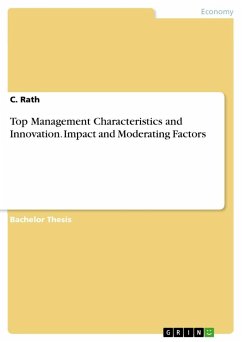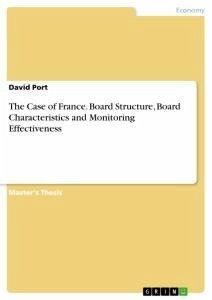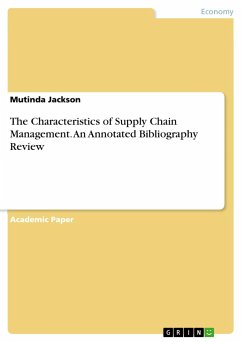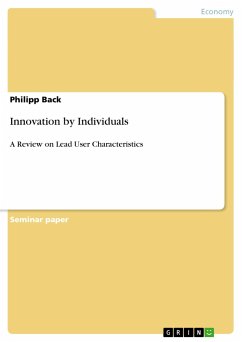Bachelor Thesis from the year 2018 in the subject Business economics - Business Management, Corporate Governance, grade: 1.0, LMU Munich (Strategische Unternehmensführung), language: English, abstract: This thesis deals with the impact of TMT characteristics on innovation. The aim of this thesis is to integrate theoretical and empirical findings on the relationship between TMT characteristics and innovation and to discuss possible reasons for differing empirical results of prior research. Upper echelons research also has practical relevance, as it suggests several managerial implications that can be useful in the selection and training of top managers as well as in forecasting actions and counteractions of rivals. For the remainder of this paper, specific demographic characteristics will be identified that should be taken into account when a firm wants to pursue an innovation strategy. This thesis will start with an explanation of innovation and TMTs, which are central constructs of the research question. Subsequently, the basic model of UET will be described. The main part will focus on the impact of TMT characteristics on innovation, and therefore, TMT traits as well as TMT diversity will be explored. With respect to TMT traits, the impact of average age and tenure, educational and functional background as well as gender on innovation will be analysed. In terms of TMT diversity, the impact of TMT heterogeneity in age, tenure, education, function and gender on innovation will be examined. Afterwards, moderating factors that affect the relationship between TMT characteristics and innovation will be introduced in order to further explain some of the differing empirical findings. Therefore, the moderating effects of culture, industry context, strategic context and interfunctional coordination will be investigated. Then, a case study will be conducted to apply the findings of the main part. Finally, a conclusion will be drawn by providing managerial implications, discussing some limitations of this thesis and outlining some topics that require future research.
Hinweis: Dieser Artikel kann nur an eine deutsche Lieferadresse ausgeliefert werden.
Hinweis: Dieser Artikel kann nur an eine deutsche Lieferadresse ausgeliefert werden.








